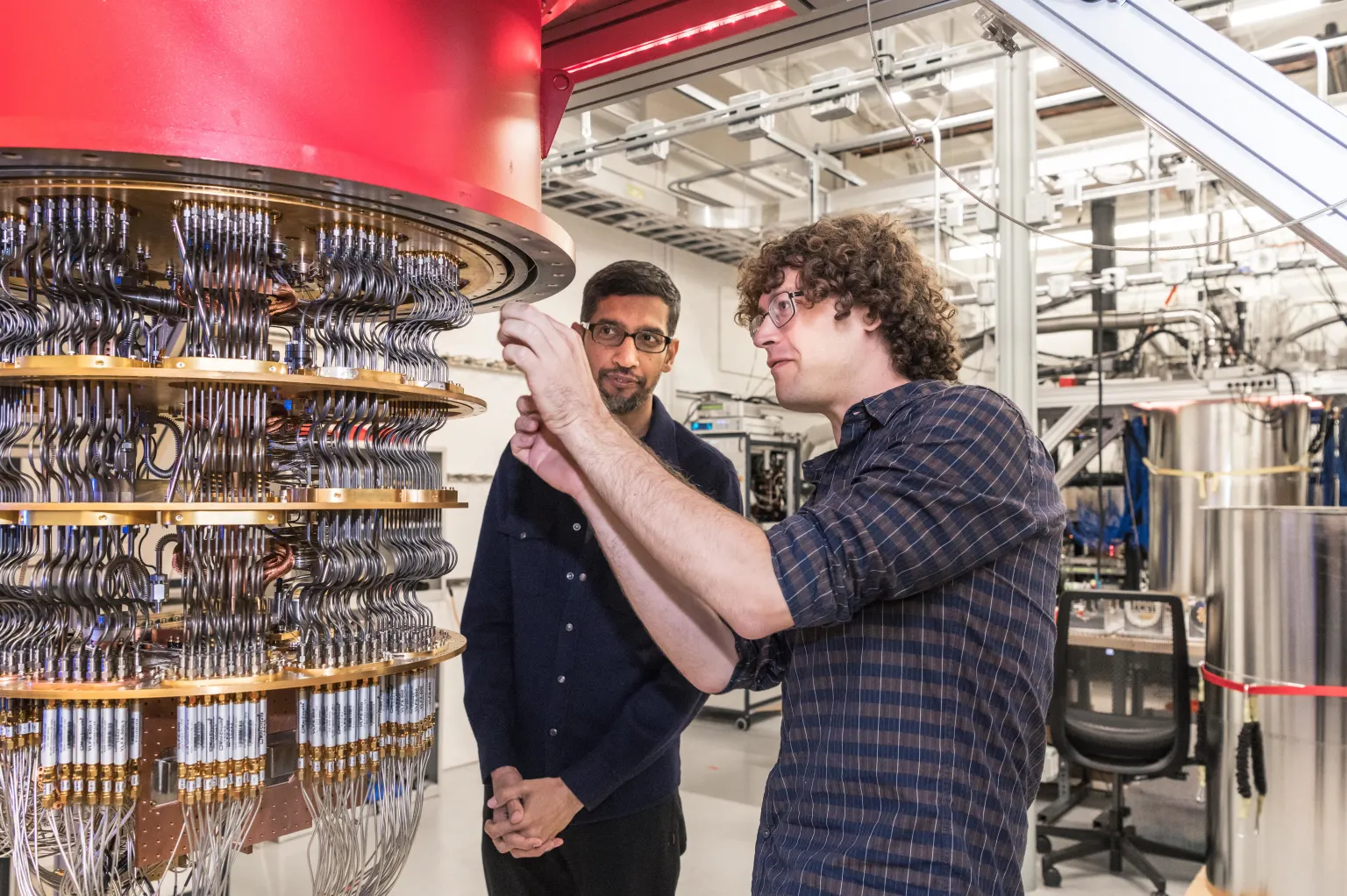Google Deepmind researchers released a paper introducing AlphaQubit, their new AI-based system that can accurately identify errors inside quantum computers. The paper, titled ‘Learning high-accuracy error decoding for quantum processors’ introduced the system as a neural network decoder designed to decode the surface code and establish state-of-the-art error suppression.
The Google Deepmind team announced the technology on LinkedIn, saying that AlphaQubit helps make quantum computers more reliable.
The system was trained on data from 49 qubits within the Sycamore quantum processor, a core component of quantum computing. AlphaQubit achieved groundbreaking results while testing on new Sycamore data.
This initiative aims to address the inherent errors in quantum systems, thereby advancing the reliability and scalability of quantum computers.
AI Meets Google’s Quantum Vision
AlphaQubit is part of Google DeepMind’s plan to combine AI with quantum computing. The company has already made breakthroughs in AI, like predicting protein structures and creating advanced game-playing systems. With AlphaQubit, they’re applying this expertise to one of quantum computing’s biggest challenges: fixing errors.
Although AlphaQubit shows progress, there is still work to do. The system needs to handle more complex quantum problems and work seamlessly with existing quantum hardware. Even so, it’s an encouraging step toward making quantum computing practical.
To speed up the progress, Google DeepMind will team up with universities and industry partners. These collaborations will help refine AlphaQubit and explore its use on different quantum computing platforms, moving closer to solving problems that traditional computers can’t handle.
When it comes to testing, the system was shown to reduce errors by 6% compared to tensor network methods, which are accurate but computationally slow, and by 30% compared to correlated matching, a faster but less precise approach.

Qubits Under a Microscope
Quantum computers use qubits, which can exist in multiple states at once, giving them incredible computing power. This, however, also makes them prone to errors caused by environmental factors and hardware imperfections. Fixing these errors is crucial to making quantum computers useful.
AlphaQubit uses machine learning to improve error detection and correction. It studies large amounts of data on quantum errors, finds patterns, and creates strategies to fix them more effectively, making quantum computing more reliable and practical.
The researchers claim that the system maintained superior accuracy when scaled up. These results establish AlphaQubit as a new standard for decoding accuracy in quantum computing.

Typically, error correction in quantum computing requires many physical qubits to protect a single logical qubit, which makes systems bulky and complex. AlphaQubit aims to simplify this by reducing the number of physical qubits needed, making the technology more efficient and easier to scale.





























